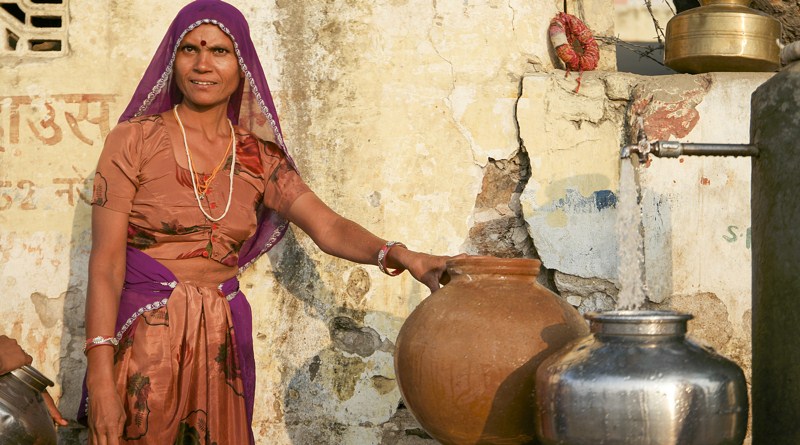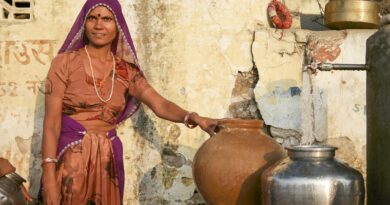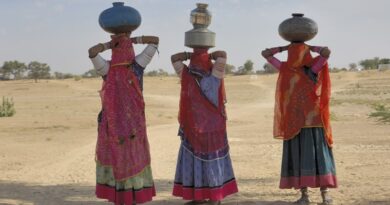JJM: Centre says on course to provide tap water supply to all rural households by 2024

The Centre aims to accelerate Jal Jeevan Mission, its flagship programme aimed at providing piped water connection to all village households, and ensure that eight states and two Union territories have functional household tap connections in 2022.
The nine states where all rural households are expected to get water supply through taps are Gujarat, Himachal Pradesh, Punjab, Sikkim, Uttarakhand, Manipur, Meghalaya, along with Jammu & Kashmir and Ladakh.
Providing a report card of the ambitious JJM, the Union Jal Shakti Ministry said at the time of announcement of Jal Jeevan Mission in August 2019, out of 19.20 crore rural households, only 3.23 crore (17 per cent) households reportedly had tap water connections.
During 27 months, 5.44 Crore (28.30 per cent) rural households have been provided with tap water connections. Also, provision of tap water supply has been made in 8.33 lakh (81 per cent) schools and 8.75 lakh (78.3 per cent) anganwadi centres.
Union Jal Shakti Ministry Additional Secretary & National Jal Jeevan Mission Mission Director Bharat Lal said in 2023, all rural households in another nine states – Arunachal Pradesh, Karnataka, Tamil Nadu, Kerala, Madhya Pradesh, Mizoram, Tripura, Nagaland and Chhattisgarh – will be provided with tap water connections.
Another eight states – Assam, Andhra Pradesh, Jharkhand, Maharashtra, Odisha, Rajasthan, Uttar Pradesh and West Bengal – will be provided tap water connections in 2024, Lal added.
The Jal Jeevan Mission aims to provide safe and adequate drinking water through individual household tap connections to all rural households across India by 2024.
“With existing piped water supply systems, all remaining households in villages will be provided with water supply by retrofitting and augmenting, if needed, so that ‘no one is left out’,” Lal said.
Multi-disciplinary teams are visiting villages to interact with the community, understand the implementation of the Mission and support the state in its planning and roll-out.
“A task force has been constituted to analyze various drinking water programmes taken up by various states and Union Territories to learn drivers of successes and cause of failures to use this in the Jal Jeevan Mission,” Lal said, adding that 1301 newly emerged arsenic (883) and fluoride (418) affected habitations are being covered through piped water supply on priority by March 2022.
Under Jal Jeevan Mission, priority is accorded to water-scarce areas, quality-affected villages, aspirational districts, SC/ST majority villages and Saansad Adarsh Gram Yojana (SAGY) villages.
So far in 4.5 lakh villages village water & sanitation committees (VWSCs) have been formed and village action plan (VAP) has been prepared for 3.37 lakh villages. More than 8.5 lakh women volunteers have been trained to test the quality of water by using field test kits. These volunteers collect samples and test quality to ensure that water supplied is as per the prescribed parameters. There are more than 2000 water testing laboratories which are open for public at a nominal cost to test quality of water, an official statement said.
The Mission’s target of 100 per cent functional tap water connection to all rural households by December 2024 is on track, said Lal. As of this month, 45 per cent village households have got tap water connection and this figure will increase to 54 per cent by March 2022. The main focus of the JJM is to empower villages and communities to manage the entire water supply scheme in an efficient manner, he added.



